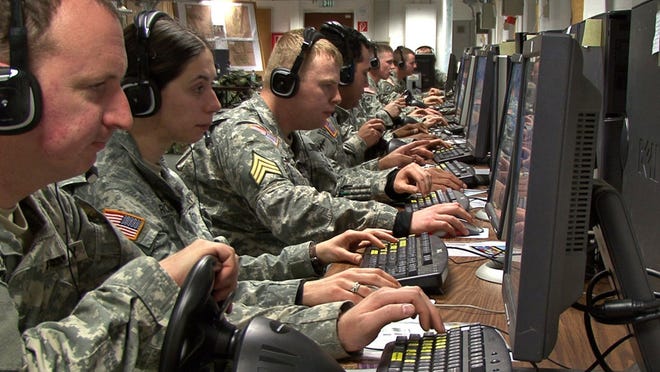It is all about the time-sensitive combat operations at the end of the day. Read below to learn why the U.S. Military is still using Windows XP!
Global organizations look forward to upgrading their systems to the latest O.S. versions that Windows releases. It is impertinent to keep up with the rest of the digital world to use the newest O.S., especially when running state-of-the-art enterprises.
But can the mighty organizations like the U.S. military afford to jump to Windows 10 or Windows 11, for that matter? The answer is no!
Why Does The U.S. Military Use Windows XP?
Let’s break down what the U.S. Military does in parts to understand more about their systems’ usage. Millions of office computers today are used to handle day-to-day tasks.
An incentive by the Pentagon to upgrade can be manifested here in parts, where systems are upgraded while training is imparted side-by-side to the soldiers.
The upgrade, thus, won’t leave the veteran Microsoft products behind. This is done to ensure a smooth transition from the old to the new system while curbing down the cyber-security risks and fatal consequences.
The U.S. Army became the first major Military branch to upgrade almost 950,000 computer systems to Windows 10, followed by the U.S. Air Force in March 2018 and the U.S.
Navy late that summer. The overhaul was for the office/administration setting. This brings us to the other part of the U.S. Military’s operations on the field, out at sea, and in the air.

They use a phenomenon called ‘windows boxes.’ “You’re dealing with a lot of [machines] that aren’t contained in a nice office,” says Sasha Romanosky, ex-cyber policy adviser at the Office of the Secretary of Defense for Policy in the U.S. DoD. “They’re floating all over the seas and in the air and all around the world.”
The house-old software supports the war machines used in various ops, not necessarily based on the latest technology! So, it does not make sense to halt those time-sensitive operations when hundreds of thousands of men, soldiers, and civilians are deployed in the field and require second-by-second assistance. It becomes a matter of life and death!
This is why the U.S. Military pays billions of dollars to Microsoft to keep the old O.S. and software running.
Cyber Attacks Are More Common In Latest Versions
Unlike usual mega-corporations, the Pentagon is bound to secure and update computer systems supporting military operations and, perhaps, directly controlling the navigation or weapons systems.
The DoD is continuously developing weapons systems and programs. Each part of mission-related software is initially written for the specific operating system, often Windows, the most common operating system used on PC.s and laptops around the globe.

As part of the tech world, Windows has to keep evolving, and hence, it comes out with an upgrade over a few years. Subsequently, the U.S. Military waits for the worst bugs to get worked out of the system. Then it starts upgrading its systems to the newest O.S. as cyber-security is today’s most significant threat to the U.S. Military.
When the latest Windows O.S. runs in billions of computers, bugs and other vulnerabilities are discovered, which help to curtail malicious hacking attacks over undiscovered system flaws.
“Even if you’re paying Microsoft to patch it, what you don’t have is the benefit of millions or billions of users discovering in real-time flaws and then Microsoft jumping in to patch that,” says Cynthia Dion-Schwarz, senior scientist at RAND Corp. and ex-director of information systems and cybersecurity research at the U.S. DoD.
This is why the U.S. Military uses Windows XP in mission-sensitive areas and systems while gradually upgrading to Windows 10 and later versions at the administrative side. Unless war machines that came into play decades ago stop being relevant to military ops, which is not going to happen anytime soon, militaries worldwide and the U.S. specifically can not afford to take the chance of ‘retiring’ the aging O.S.
Even the president of Russia, Vladimir Putin, also uses Windows XP!
With that, I bid you farewell for now. What news have you heard about the U.S. Military’s use of Windows XP? I’m happy to hear what you have got!









